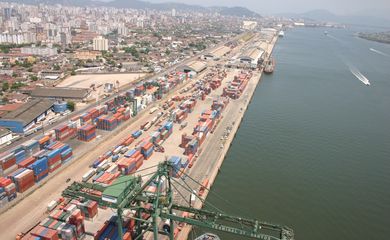China supports Brazil’s reforms, ambassador says

China’s Ambassador to Brazil Yang Wanming said today (Feb. 27) his country supports the reforms proposed by the Brazilian government and hopes to expand the commercial partnership between the two nations. He attended a meeting with executives held by the Lide (Group of Business Leaders) China in São Paulo.

“Brazil entered a new stage of development, dedicated to the reforms of political and economic institutions. China backs the reforms of the Brazilian government, as they will bring welfare to the Brazilian people,” he said.
Wanming noted that China was Brazil’s top commercial partner for three consecutive years. According to figures from the Economy Ministry, the trade between the two countries totaled $26.6 billion last year, imports and exports considered together. Brazil’s main exports include soybeans and unrefined oil.
Lide China’s international branch brings together leaders, executives and public authorities in a bid to bolster business between Brazilians and the Chinese.
Demand
The Chinese ambassador mentioned the increasing demand for consumption reported by the Asian country and the opportunities this landscape may offer Brazil. “In the next 15 years, the expected average of imports [by China] stand at 33 trillion,” he declared.
In the post for two months, Wanming said he held talks with President Jair Bolsonaro and his ministers in order to express China’s interest in deepening commercial and financial cooperation ties.
“President Bolsonaro said he will dedicate all efforts to expanding relations with China, especially for commerce,” said the Chinese ambassador.
Sectors
Cooperation between Brazil and China will strengthen in industry, energy, the manufacturing process of farming goods and oil refinement—segments with higher added value. China, the ambassador went on to say, left high-speed growth behind, and has directed its focus towards quality.
“The growth of the global economy is still anemic. In this context, our two countries must take the opportunity provided by market potential,” he argued.





